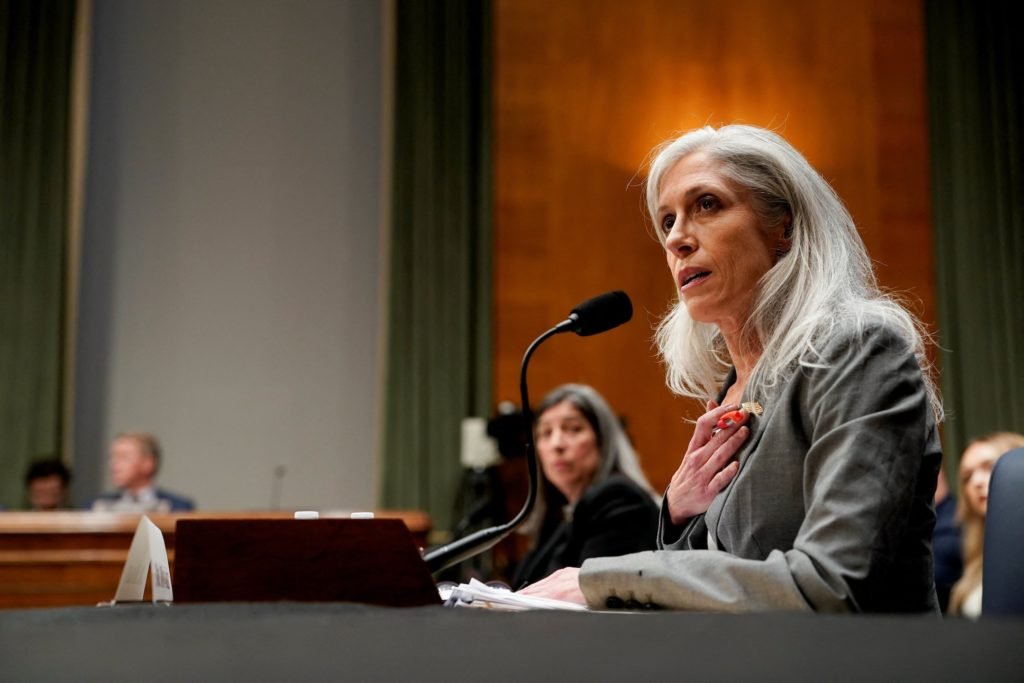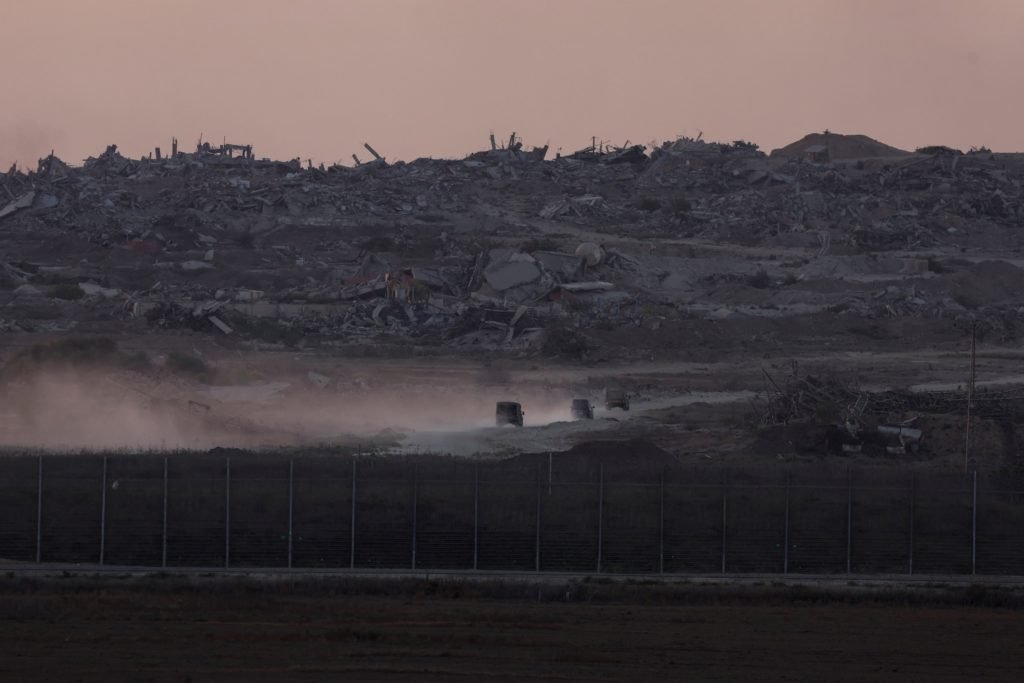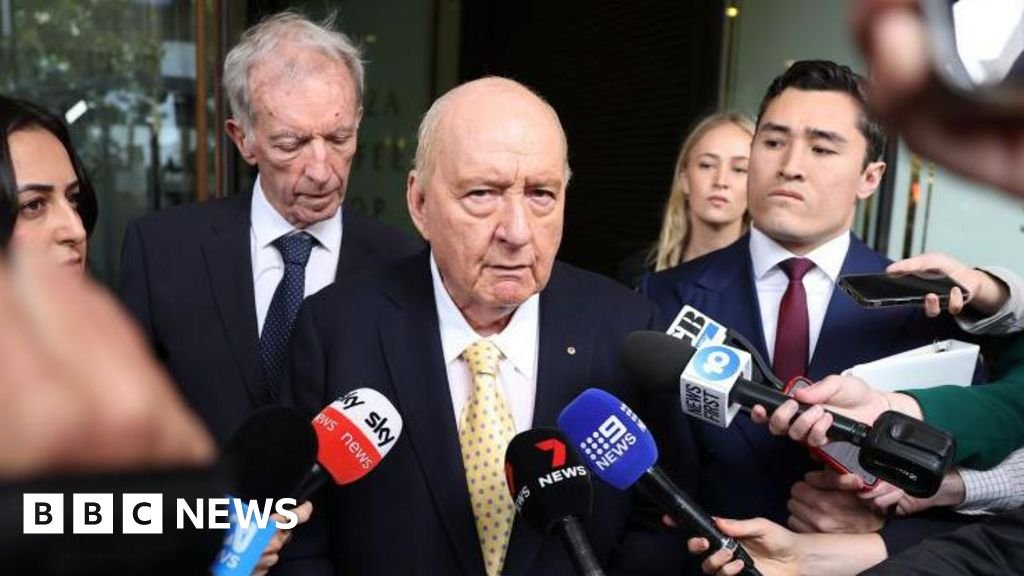Geoff Bennett:
Former CDC Director Susan Monarez gave her first detailed account of her high-profile firing during a Senate hearing today. Monarez was ousted less than a month into the job, making her the shortest-lived director in the agency’s history. Two other top officials resigned in protest, including the CDC’s then-chief medical officer, who testified alongside Monarez today.
Questions about the future of vaccine policy were front and center.
Congressional correspondent Lisa Desjardins has our report.
Lisa Desjardins:
A remarkable hearing.
Dr. Susan Monarez, Former CDC Director:
I could have kept the office, the title, but I would have lost the one thing that cannot be replaced, my integrity.
Lisa Desjardins:
Two recent Trump CDC officials, former Director Susan Monarez and former Chief Medical Officer Debra Houry, raising sharp questions about sitting Cabinet Secretary and their former boss Health and Human Services Secretary Robert F. Kennedy Jr.
Dr. Debra Houry, Former CDC Chief Medical Officer:
Secretary Kennedy censored CDC science, politicized its processes, and stripped leaders of independence. I could not, in good conscience, remain under those conditions.
Lisa Desjardins:
Houry we resigned after Monarez was fired last month. That firing and its relationship to vaccine policy were the key foci today.
Monarez told senators that, days before her firing, Kennedy gave her orders regarding ACIP, the key vaccine advisory board he had just replaced.
Dr. Susan Monarez:
He directed me to commit in advance to approving every ACIP recommendation, regardless of the scientific evidence. He also directed me to dismiss career officials responsible for vaccine policy without cause. I told the secretary that, if he believed he could not trust me, he could fire me.
Robert F. Kennedy Jr., U.S. Health and Human Services Secretary: You had an employee.
Lisa Desjardins:
A far cry from Secretary Kennedy’s account in a hearing earlier this month.
Robert F. Kennedy Jr.:
I told her that she had resigned because I asked her, are you a trustworthy person? And she said no.
Sen. Elizabeth Warren (D-MA):
So you’re saying she’s lying?
Robert F. Kennedy Jr.:
Yes.
Lisa Desjardins:
At stake is an even larger battle about truth. What does science say about vaccines? Secretary Kennedy has long insisted that science has led him to question the current use of some vaccines and that he and President Trump want radical transparency about data.
But Monarez told senators there’s already clear and strong data about vaccines and Kennedy was going to change vaccine recommendations for kids this month without enough data.
Dr. Susan Monarez:
We got into an exchange where I had suggested that I would be open to changing childhood vaccine schedules if the evidence or science were supportive. And he responded that there was no science or evidence associated with the childhood vaccine schedule. And he elaborated that CDC had never collected the science or the data to make it available related to the safety and efficacy.
Sen. Bill Cassidy (R-LA):
To be clear, he said there was not science or data, but that he still expected you to change the schedule?
Dr. Susan Monarez:
Correct.
Lisa Desjardins:
Kennedy has repeatedly said HHS did not fund the kinds of studies he thinks are needed. But decades of research trials and practice have gone into the current vaccine guidelines.
Sen. Rand Paul (R-KY):
What is the science?
Lisa Desjardins:
One Republican pushed hardest on Monarez for her vaccine stance, Kentucky’s Rand Paul, who also questioned her word.
Sen. Rand Paul:
The burden is upon you and the people you wouldn’t fire to prove to us that we need to give our 6-month-old a COVID vaccine and that we need to give our 1-day-old a hepatitis B vaccine. That’s what the debate ought to be about, not whether all vaccines are good or whether we live in “Alice in Wonderland.”
Dr. Susan Monarez:
I actually agree with you. And I was open to the science. I just would not pre-commit to approving all the ACIP recommendations without the science.
Sen. Rand Paul:
Untrue.
Lisa Desjardins:
The American Academy of Pediatrics has said adults with hepatitis B may not be aware they have it and immunizing newborns is critical to reduce chronic hepatitis B later in life.
Democrats raised a host of concerns, including a targeted shooting spree at the CDC over a month ago that left a police officer dead and the atmosphere for those still there.
Sen. Lisa Blunt Rochester (D-DE):
These are unsung heroes.
Lisa Desjardins:
The witnesses spoke personally.
Dr. Susan Monarez:
I myself was subject to threats.
Dr. Debra Houry:
I have many that won’t speak about vaccines now and removed their names off of papers.
Sen. Chris Murphy (D-CT):
So you know of personnel who now will not put their name behind good science…
Dr. Debra Houry:
Correct.
Sen. Chris Murphy:
… that they know would protect the health and safety of families and children because of their fear of violence?
Dr. Debra Houry:
Correct.
Lisa Desjardins:
The CDC’s newly formed vaccine advisory committee is set to meet this week to make recommendations, Monarez and Houry warned today about what they fear from any change to key immunization schedules like those for hepatitis B and measles.
Dr. Debra Houry:
These diseases have long-term consequences, and we don’t need — in the U.S., we have gone so far in reversing this. We don’t want our children to die.
Lisa Desjardins:
Houry said in not hearing that Secretary Kennedy, in her opinion, should resign. I asked Senator Cassidy if he would still vote to confirm Kennedy if the vote were today. He said he’s waiting for and hopes for Senator Kennedy to respond to today’s hearing first.
Meantime, Cassidy says the vaccine advisory hearing meeting for tomorrow should be postponed. We have no evidence that it will be.
Geoff Bennett:
So, Lisa, how is Secretary Kennedy responding to all of this?
Lisa Desjardins:
We got this statement from the White House when I asked about the hearing. And they wrote, saying that simply no one in the Trump administration is calling to throw out the entire childhood vaccine schedule or block access to lifesaving vaccines.
But when you think about that statement, I didn’t hear anyone accusing them of that. I think the question is here, what do they want to do with vaccines? What do the changes mean? Are they based on data? And how would they affect availability?
One other note about this hearing, Geoff, it’s hard to tell from off the Hill, but this was extraordinary. I can’t remember any time that some senator of the Republican, especially, but any president’s party, has had such a critical hearing of a sitting Cabinet member from that party.
Geoff Bennett:
Well, that’s right. Republicans control the Senate. They control the committee before which Monarez testified. So it was Republicans who wanted to hear her perspective. I mean, that’s really — that’s striking.
Lisa Desjardins:
This was a statement from the chairman, Bill Cassidy. And, remember, he is up for reelection. He is facing pressure from the right and the left. This is why he was really carefully navigating his own statements, but the hearing itself was a statement.
Geoff Bennett:
All right, let’s shift our focus a bit because we are facing another potential government shutdown. Here we go again.
Lisa Desjardins:
I know.
Geoff Bennett:
How is this all unfolding?
Lisa Desjardins:
All right, it seems like we have a lot of time in terms of the way that Congress works, but we don’t because Congress is gone next week.
So really, ideally, they should be figuring this all out this week if they want to get funding in place by September 30. And Republicans do have a proposal. Here’s what they plan to vote on in the House later this week. The idea is to extend government funding to November 21 to try and work out appropriations in the meantime.
Now, in their bill, there would be $88 million for more security following the assassination of Charlie Kirk for executive, legislative, and judicial branch. It would also restore Washington, D.C.’s spending ability. That was frozen. The District lost some $400 million because of that.
So, now the issue is here, the votes. Republicans can only lose two votes to get this through the House. And, oh, we have two Republicans who have problems with it. Imagine that. Thomas Massie there on the left, he is a hard no. But Warren Davidson of Ohio was a no on Monday. Now he’s a maybe. This is going to be close. We expect that vote on Friday.
If it gets through the House, then the Senate is a whole other question, where Senate Democrats, many of them are hoping to block this. That is what would potentially lead to a shutdown.
Geoff Bennett:
And the Senate Democratic leader, Chuck Schumer, is talking tough right now. But back in March, was it, the last time this came about, he moved to avoid a government shutdown. He was on this program and said he thought a shutdown would be worse for the country. So how do Democrats see his result?
Lisa Desjardins:
That’s right. This is a lot on Senator Schumer’s shoulders. And I have to tell you that Senate Democrats I have been texting with say he is resolved.
And I just have some breaking news about what he plans to ask for. So here’s what — we want to look at what we have learned. This is what Democrats are going to ask for in order to go along with the funding bill. They want to extend the Affordable Care Act tax credits, which expired the end of the year, repeal the Medicaid cuts that were in the Big Beautiful Bill Act and, interesting, restore some of the rescission funding that was cut, including, I’m told, the funding that was cut from public broadcasting.
Now, this is a Democratic wish list. We already know Republicans are against those first two items. We will see what they think about the rescissions. But what this tells me, bottom line, is that we are probably closer to a shutdown than farther away from one. And time is far shorter than people realize.
Geoff Bennett:
Real-time breaking news reporting.
Lisa Desjardins on top of it all, as always, thanks so much.
Lisa Desjardins:
You’re welcome.




